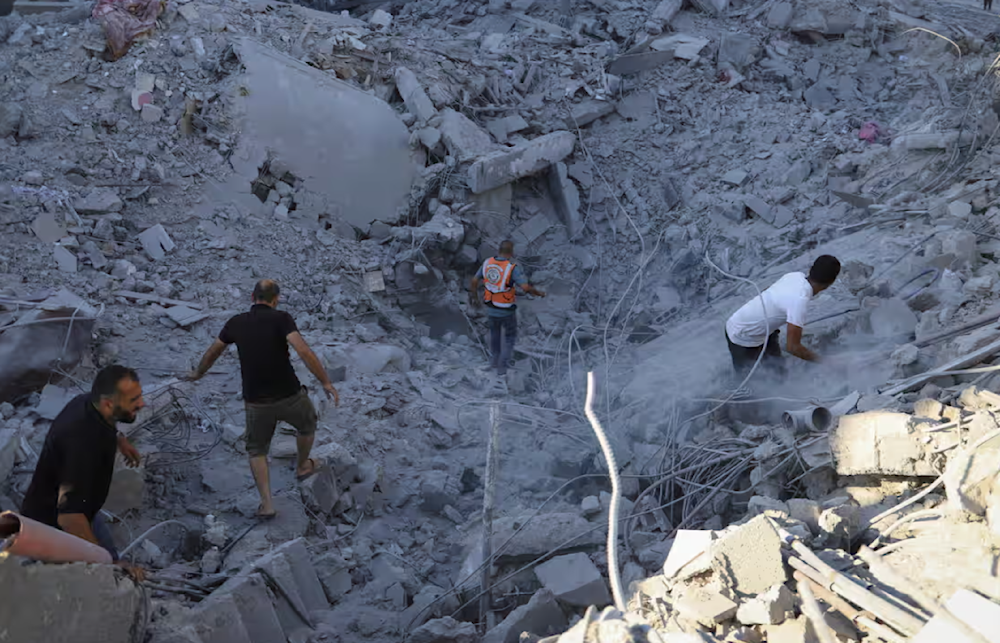At least 6,000 Palestinians missing in Gaza amid Israeli genocide
The ICRC, as per a spokesperson, receives 500 to 2,500 calls regarding missing persons on average every week.
-

Palestinians search earlier this month for bodies and survivors in the rubble of a building destroyed in an Israeli airstrike in Khan Younis, Gaza, in early July 2024. (AP)
Nearly 6,400 Palestinians are still missing according to the International Committee of the Red Cross (ICRC) since the war on Gaza began.
Many are thought to be stuck under the rubble, buried without being identified, or held in Israeli prisons, while others remain separated from their families, unable to make contact. Nearly 1,100 new missing persons cases have been recorded since April, according to the ICRC. Their status remains unsolved.
Sarah Davies, an ICRC spokesperson, reported that every week there are 500 to 2,500 calls regarding missing persons, detailing that "in such chaotic situations, people can be separated easily. People are panicked, sometimes it is dark and difficult to see, if there are explosions nearby people flee and lose one another.”
She added that family members do not always know which ambulances transfer their injured family members or which hospitals they are transferred to. In other cases, people lose their phones, connections are disrupted, and sim cards are changed, as per the ICRC spokesperson.
"There are untold reasons people get separated in a war zone," she explained.
Furthermore, "Israel" has deliberately attacked hospitals and hindered efforts by medical professionals to register injuries and identify the deceased. The relentless aggression, along with mobility limitations and communication problems, has made it difficult to track and locate missing people. Furthermore, forensic and human rights specialists' access has been limited, making it impossible to identify victims.
According to Save the Children's most recent report, the intensity of Israeli strikes and unexploded bombs and missiles in the debris makes it too dangerous for first responders and relatives to search for people in the rubble.
The ICRC has documented over 8,700 missing Palestinians in Gaza, and approximately 2,300 cases have been settled. The true number may be higher, because not all families may call the ICRC and whole families have been slaughtered, leaving no one behind to report.
Muhammad Naji, a resident of al-Falluja in the north of Gaza, claimed emergency response personnel were able to rescue eight individuals from the debris following a recent bombing, but 17 more remained trapped beneath.
"The whole building collapsed on their heads. Are they dead? Are they alive? No one can tell us anything … If my cousins are dead we want to bury them. We can’t think or comprehend."
In May, Palestinian human rights groups reported a lack of information regarding the whereabouts and status of approximately 1,000 Palestinian workers from Gaza. These individuals were working in the 1948 occupied Palestinian territories when "Israel" began its brutal aggression on Gaza.
Locating the missing is a difficult procedure that involves cross-referencing information about their status with data from concerned parties and other sources, such as hospital patient lists or detainee records repatriated to Gaza.
Davies also added that the constant movement of Palestinians makes this more challenging. “People are moving so often; they are living in tents and don’t have fixed addresses.”

 3 Min Read
3 Min Read








